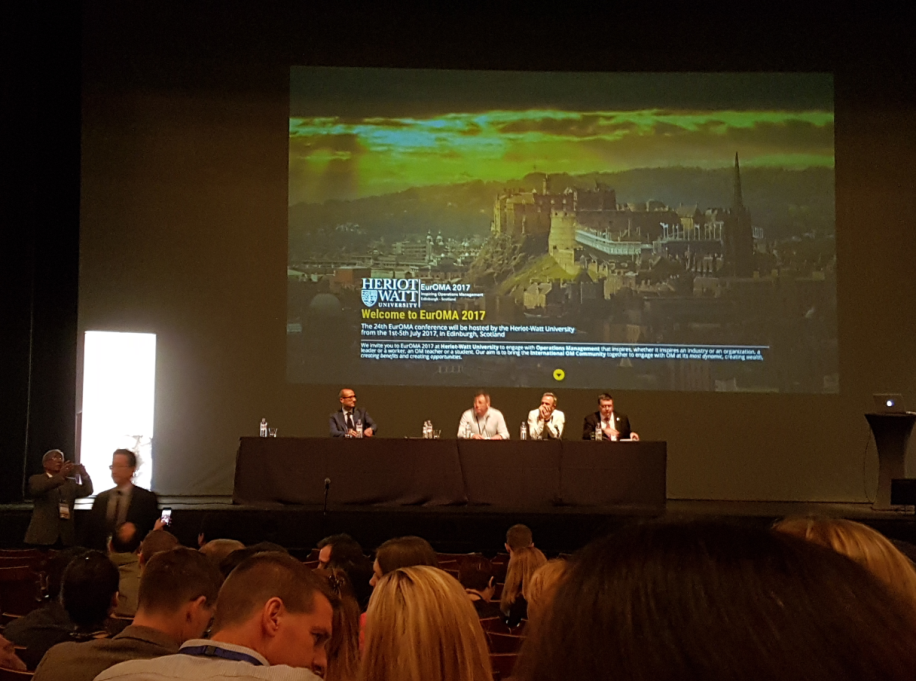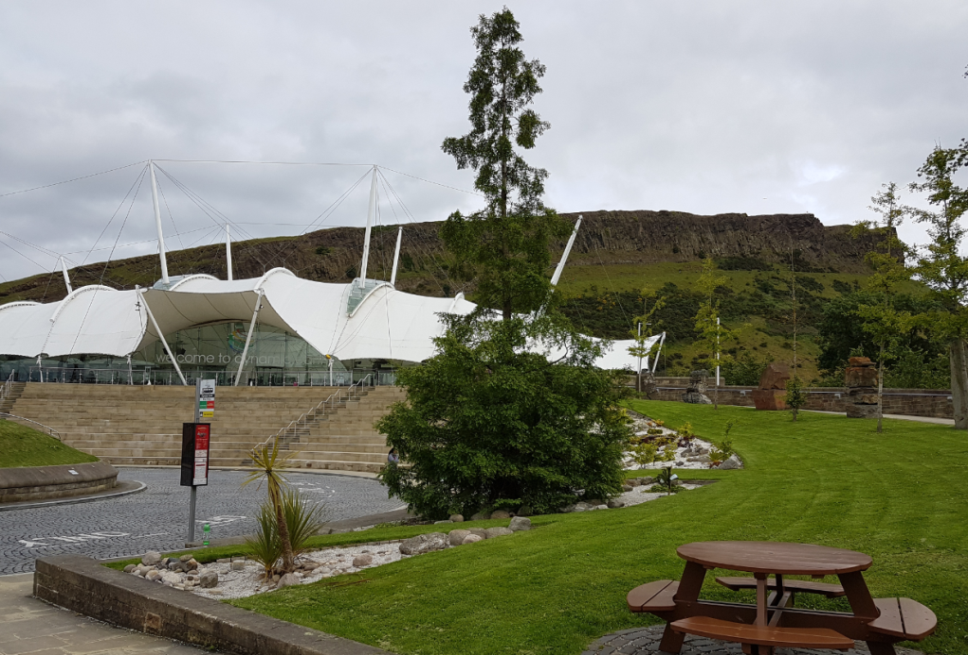
Last week at the 24th European Operations Management Association (EurOMA) Conference which was hosted by the Heriot-Watt University in Edinburgh, Scotland, City-REDI’s Amir Qamar delivered his research. Amir’s research, titled Lean versus Agile Manufacturing: An Empirical Investigation into the Midlands Automotive Industry, explores how lean and agile manufacturing strategies can result in different performance outcomes.
In total, over 500 papers were presented at the conference across a board range of themes including Supply Chain Management, Lean/Agile Operations, Re-shoring, Industry 4.0 and Innovation. However, the overarching theme of this conference was ‘Inspiring Operations Management’, and as such attendees were presented with questions such as: What does inspiring Operations Management (OM) look like on the shop floor, online or in a boardroom? How does theory contribute to inspiring OM? What are inspiring OM practices? How can OM teaching be inspiring?
In order to start a discussion which answered these questions, during the opening plenary Professor Michael Lewis not only talked about making research more relevant but delved into how ‘Art’ personally inspires his thinking around Operations Management. He expressed concerns over how ideas are taken out of context to mean something else. For instance, he illustrated his ideas via the use of paintings and suggested it is important that academics do not focus on a small section of a work of art (scope of investigation) without addressing the importance of the rest of the painting (context). Furthermore, Professor Michael Lewis asserted that reviewers should not reject the publication of papers that seek to replicate previous work, as in order to continually assert an idea, it must be proven to be true in numerous accounts and situations. He further went on to suggest that maybe the Operations community should align our thinking towards hard sciences, who repeatedly test the same experiment before making sound findings.

Birmingham Business School’s Dr Mark Hall and PhD student Leszek Ankudowicz also presented their work concerning the trade-offs associated with resilient and efficient projects and the utility of supply chain uncertainty in an extreme retail operations case.
Furthermore, thought provoking discussions were made concerning the relevance or lack of theory in Operations Management. Some suggested that it is our responsibility to address this concern and welcome the borrowing of theory from other disciplines. However, others suggested that theory will inevitably birth within Operations Management as time progresses within this relatively new discipline. Regardless of theory, the managerial implications of OM research have always been of great importance and with Brexit around the corner, there is no doubt that this field will gain more attention as Supply Chains may perish and become smaller within the UK. Operations managers need to carefully think about not only about their performance objectives today but plan a sustainable strategy for the long-run.

To sign up to our blog mailing list, please click here
